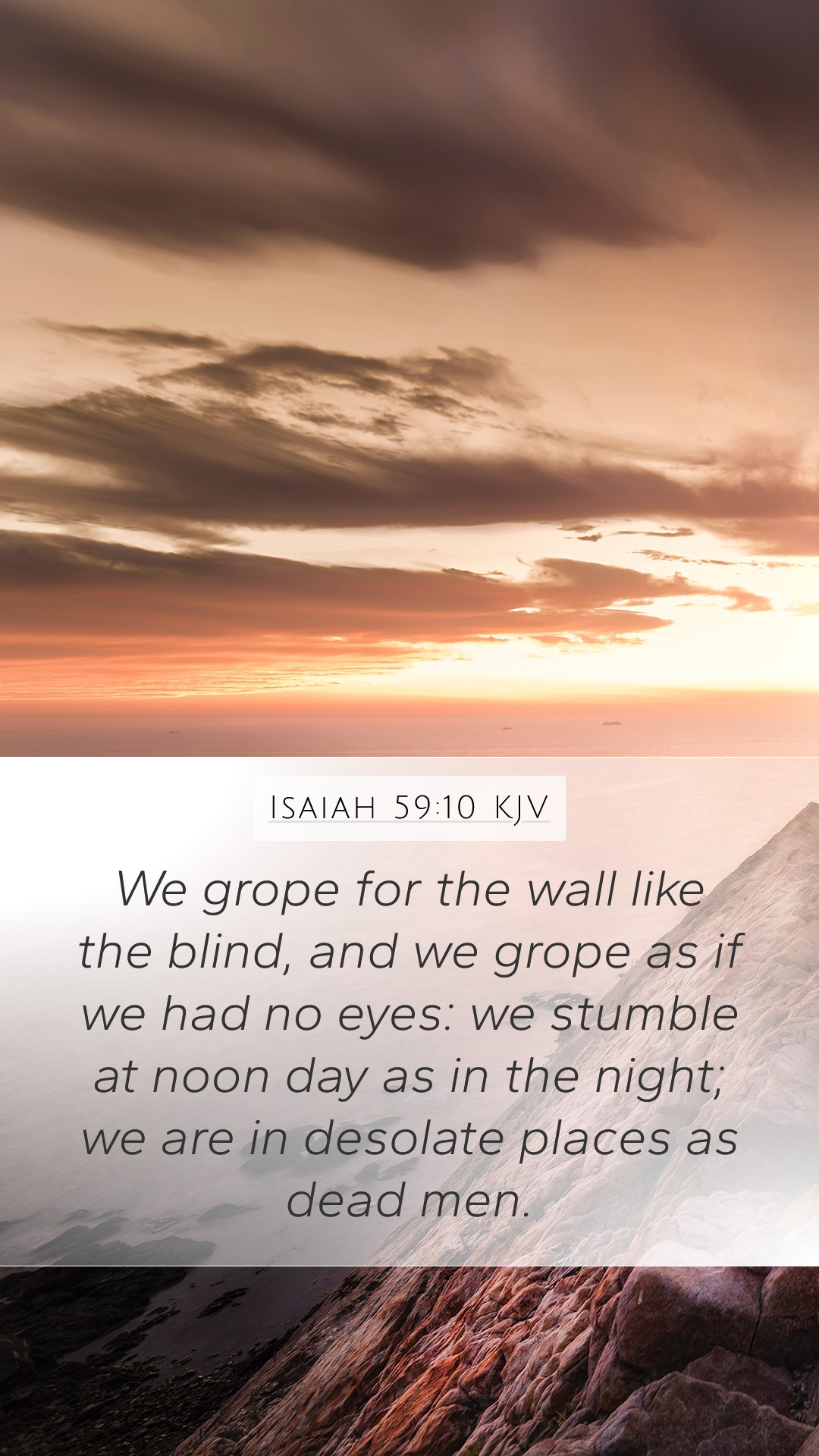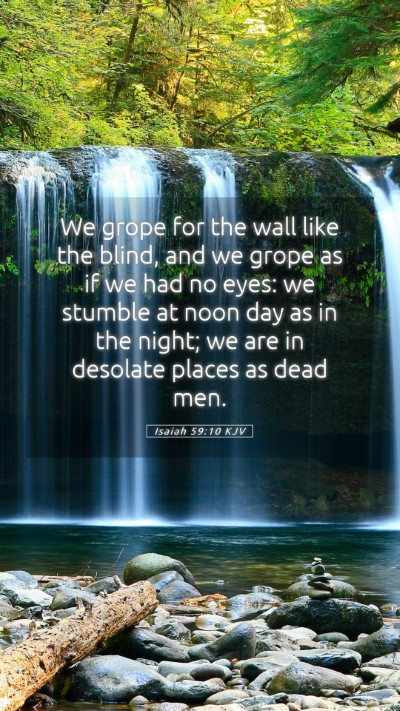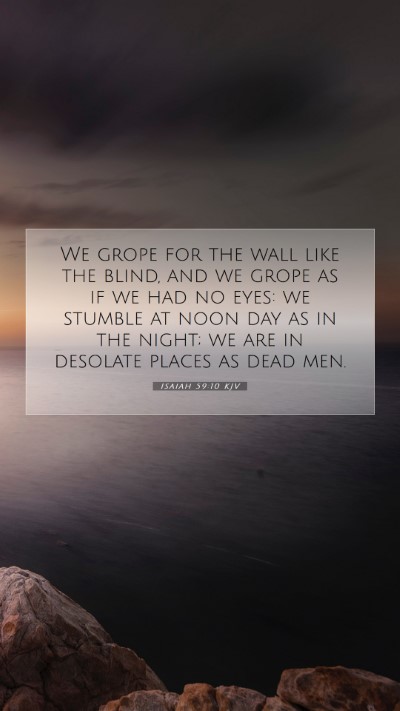Understanding Isaiah 59:10
Bible Verse: Isaiah 59:10 (KJV) - "We grope for the wall like the blind, and we grope as if we had no eyes: we stumble at noonday as in the night; we are in desolate places as dead men."
Overview of Isaiah 59:10
This verse paints a vivid picture of spiritual blindness and desolation among the people. It uses powerful metaphors to convey the distress and confusion experienced by those who have turned away from God's guidance. The imagery of groping as the blind suggests a lack of direction and understanding, highlighting the consequences of sin and separation from God.
Bible Verse Interpretations
In exploring bible verse meanings and bible verse interpretations, it is essential to delve into the context and emotional weight conveyed in this verse. The verse correlates with the spiritual condition of Israel at the time, reflecting their moral decline and the resultant alienation from God.
Key Insights from Commentaries
- Matthew Henry: Matthew Henry elaborates that this verse signifies the state of man when he is devoid of divine light. The blind groping represents a life lived without the truth, where individuals fail to see the consequences of their actions.
- Albert Barnes: Albert Barnes emphasizes the metaphor of groping in darkness, suggesting that it reflects the Israelites' confusion and moral deterioration. This imagery serves as a warning of the spiritual blindness that can arise from sin.
- Adam Clarke: Adam Clarke interprets that the noonday stumbling illustrates unexpected peril in broad daylight, symbolizing that without God's guidance, even the greatest clarity can feel like darkness.
Thematic Analysis
The themes of Biblical exegesis in Isaiah 59:10 reflect on the broader context of sin and its consequences. The verse provides deep insights into the need for divine intervention and the hope for redemption, resonating with the significance of acknowledging one’s spiritual blindness.
Spiritual Blindness
In this verse, God’s people realize they are lost, comparable to the blind seeking the wall for support. This affirms the meaning of Bible verses that deal with recognition of one's state before God, leading to repentance and a search for restoration.
Desolation as a Consequence
The mention of being in "desolate places" illustrates the emptiness and despair resulting from a disconnection from God. It reflects the consequences of straying from a righteous path, emphasizing the necessity of returning to God for illumination and guidance.
Application of Isaiah 59:10
Understanding Scripture, particularly this verse, inspires reflection on personal spiritual health. It invites believers to assess whether they, too, might be groping in their lives without the guiding light of God. It encourages sincere contemplation and engagement in Bible study groups or online Bible study resources.
For Daily Application
- Self-Examination: Assess areas where spiritual blindness may exist in life.
- Seeking Guidance: Actively seek God’s guidance through prayer and scripture study.
- Community Support: Engage in Bible study topics that foster communal growth in understanding Scripture.
Related Bible Cross References
- Jeremiah 5:21 - "Hear now this, O foolish people, and without understanding; which have eyes, and see not; which have ears, and hear not."
- Romans 11:8 - "According as it is written, God hath given them the spirit of slumber, eyes that they should not see, and ears that they should not hear."
- John 12:40 - "He hath blinded their eyes, and hardened their heart; that they should not see with their eyes, nor understand with their heart, and be converted, and I should heal them."
Conclusion
Isaiah 59:10 serves as a poignant reminder of the need for humility and awareness of our spiritual condition. It emphasizes the importance of seeking God’s light in times of darkness and confusion. Through in-depth Bible verse analysis, believers can draw crucial lessons about the consequences of moral blindness and the importance of prayerful discernment in their lives.


